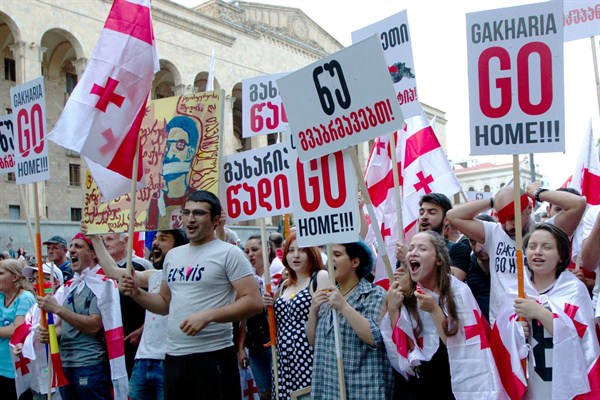Earlier this month, Georgia’s Parliament approved a new government led by Giorgi Gakharia, a controversial former interior minister who was nominated by the ruling Georgian Dream party despite his role in a violent crackdown on anti-government protests that rocked the capital, Tbilisi, this summer. Gakharia will now try to restore public confidence in the government ahead of parliamentary elections that are expected to be held early next year. Meanwhile, the main opposition party, the United National Movement, or UNM, also has work to do if it hopes to retake power. In an email interview with WPR, Olga Oliker and Olesya Vartanyan of the International Crisis Group discuss the challenges facing both the ruling party and the opposition in Georgia.
World Politics Review: What kind of message does the approval of Giorgi Gakharia as prime minister send to the opposition?
Olga Oliker and Olesya Vartanyan: It’s a message of “you’re going to get what you’re going to get” from Georgian Dream, not just to the opposition in Parliament but also to protesters.* During the mass demonstrations that took place last summer, protesters demanded changes to the electoral system to allow for more proportional representation, which the government agreed to. Protesters also subsequently demanded that Gakharia step down as interior minister, a role from which he had ordered the violent dispersal of the protests. But instead of being ousted, he was promoted to prime minister, in a vote boycotted by opposition parties. That’s a pretty clear message.

